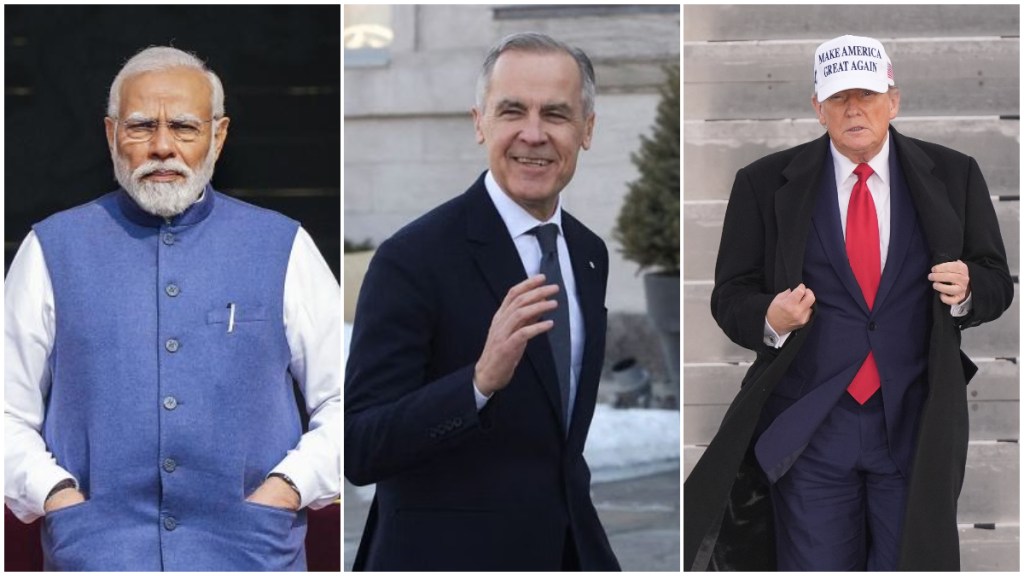Prime Minister Narendra Modi is scheduled to arrive in Canada on Monday to take part in the G7 summit that kicked-off on Sunday. The Group of 7 (G7) nations — which include the United States, Britain, Canada, France, Germany, Italy, and Japan — hold an annual meeting to discuss and align on key global issues. This summit will conclude on Tuesday, June 17.
G7 Summit: Who all are attending?
In addition to the G7 leaders, the summit will be attended by top officials from the European Union (EU) and leaders from several non-G7 countries.
Canadian Prime Minister Mark Carney has invited leaders from many countries, including Prime Minister Narendra Modi, Mexican President Claudia Sheinbaum, and Saudi Crown Prince Mohammed bin Salman. Leaders from Ukraine, Australia, Brazil, Indonesia, South Africa, and South Korea are also expected to take part in the summit.
Prime Minister Narendra Modi is expected to arrive in Canada by Monday evening. This visit is the second part of his three-country tour. However, his invitation to the G7 summit has caused a stir in Canada. Ties between India and Canada have been tense since 2023, when former Canadian Prime Minister Justin Trudeau accused India of being involved in the killing of a Sikh separatist leader in Canada.
The World Sikh Organisation criticised the invitation, calling it a “betrayal of Sikh Canadians,” while the Sikh Federation of Canada described it as “a serious insult.”
But Carney defended his decision to invite India. He said it was a practical move, as India is the world’s fifth-largest economy and plays a key role in global trade networks.
He also mentioned that Canada and India have agreed to continue talks between their law enforcement agencies, which he sees as a step forward in addressing concerns around accountability. Carney said he invited Prime Minister Modi to the summit with this progress in mind.
US President Donald Trump has already reached Canada for the summit. Several reports say that people in Ottawa also joined the anti-Trump protests which are spread across the US. Protesters were heard shouting “No Tyrants” ahead of Trump’s arrival.
G7 Summit Agenda: Wars, Trade and Tariffs
The summit is anticipated to be running high on tensions for several reasons.
Iran-Israel War
Israel’s attack on Iran is likely to shift the focus of the Group of Seven (G7) nations, pushing them to spend less time on other topics and concentrate more on how to handle the growing conflict. Hence tough talks are expected to be held over the crisis in the Middle East.
All G7 leaders are well aware of the serious global risks if this conflict escalates. A wider war could pull in more countries and cause a sharp rise in oil prices, affecting both security and the global economy.
However, reaching a united stance may be difficult. UK Prime Minister Keir Starmer and French President Emmanuel Macron have already urged for maintaing calm and efforts to reduce tensions. In contrast, Japanese Prime Minister Shigeru Ishiba strongly criticised Israel’s actions, calling the attack unacceptable and deeply troubling. Meanwhile, US President Donald Trump supported the strikes, describing them as a success.
Trump Tariffs
Another major issue at the summit is going to be the controversial US tariffs and global trade. Earlier this year, Trump had introduced new tariffs, then paused them for most countries, except China. The US and China have since reached a deal. Naturally, tariffs are going to be a major point of discussion amid the nations.
Canada-US stand-off
There may also be some tension between Trump and Canadian Prime Minister Mark Carney. In May, Trump joked that Canada should become the 51st US state. Carney strongly rejected the idea, saying Canada was “not for sale … ever”. The discussion could likely escalate if the matter is discussed at the summit again.
Russia-Ukraine War
A major point of discussion at the summit will of course be the war in Ukraine and the uncertainty around Donald Trump’s shifting position on Russia. With most G7 nations backing Ukraine, many leaders are expected to push for stronger efforts to get Russian President Vladimir Putin to agree to peace talks.
European countries believe that weakening Russia’s economy is one way to bring it to the negotiating table. During the summit, Ukraine’s supporters are likely to call for lowering the global price paid for Russian oil and pushing through a tougher set of economic sanctions.
